Robert Deutch is an expert at creating fantasy worlds that feel a little too close to reality. His satirical compositions poke fun at everything from commercialism to sexuality, often turning the mundane into the carnivalesque. Writer Tim Maclean sheds some light on Robert’s dream-world (think the comic book love-child of Salvador Dali and Dr. Suess) and hints at what’s next for the prolific artist.
In his colorful and intelligent pop-surreal visions, German artist Robert Deutsch toys with our preconceptions and turns our everyday notions of the world upside-down. Here, anti-heroes reign and the ridiculous human parade is exposed for all to see. We caught up with Robert to delve into his creative thought process and get the lowdown on his first, upcoming graphic novel; a sympathetic telling of the life and times of the pioneering English computer scientist, mathematician, logician, cryptanalyst and theoretical biologist, Alan Turing.
Hey Robert! Thanks for making the time to chat. We’re interested to hear about where you’re from and where you’re currently living. What do you like about the area?
Hello, friends! At the moment I’m living in the middle of Germany, where I was also born. I live and work in Halle and Leipzig which is historically and culturally a thrilling area. It was in Leipzig where Friedrich Schiller wrote his famous poem “To Joy”. In 1813 during the Battle of the Nations, Napoleon Bonaparte was beaten in Leipzig at the “Volkerschlacht”. And in 1989 Leipzig was one of the most important places in East Germany for the ‘peaceful revolution’ that led to the fall of “the wall” and reunited Germany. The famous Bauhaus was founded in this region. Many artists from all over the world meet in Leipzig because of its continuous exhibitions and cultural festivals; it always was, and still is, a cosmopolitan city.
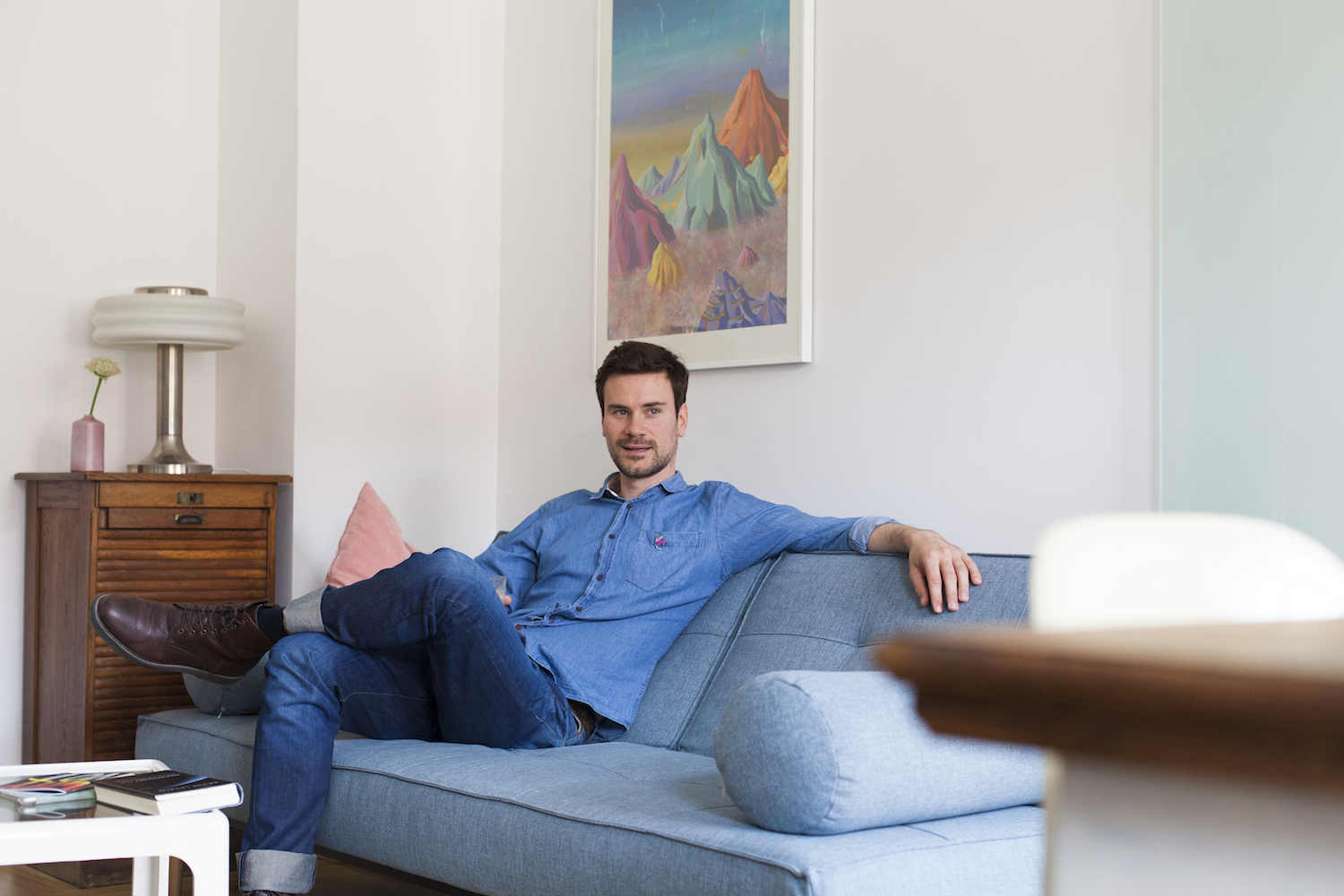
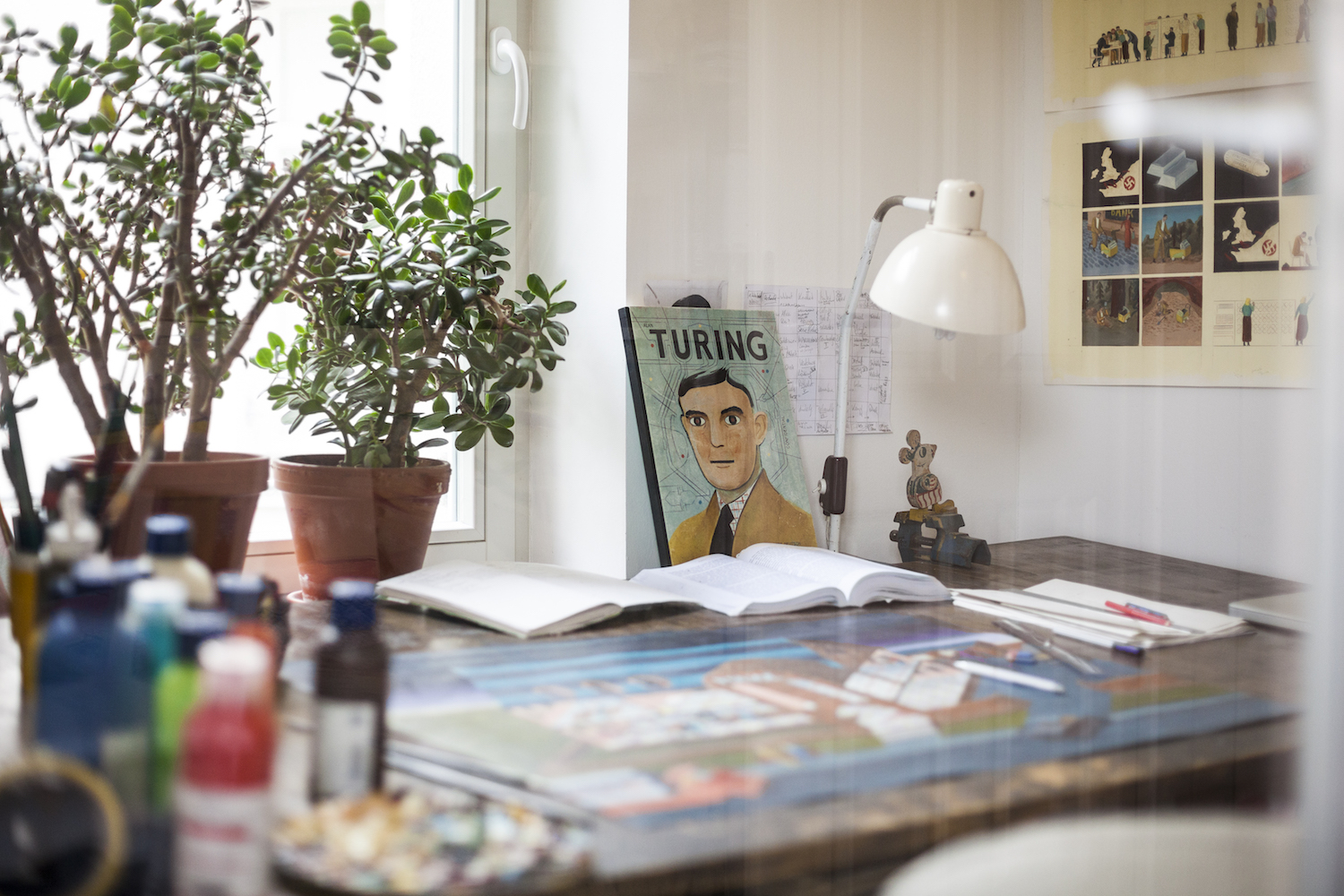
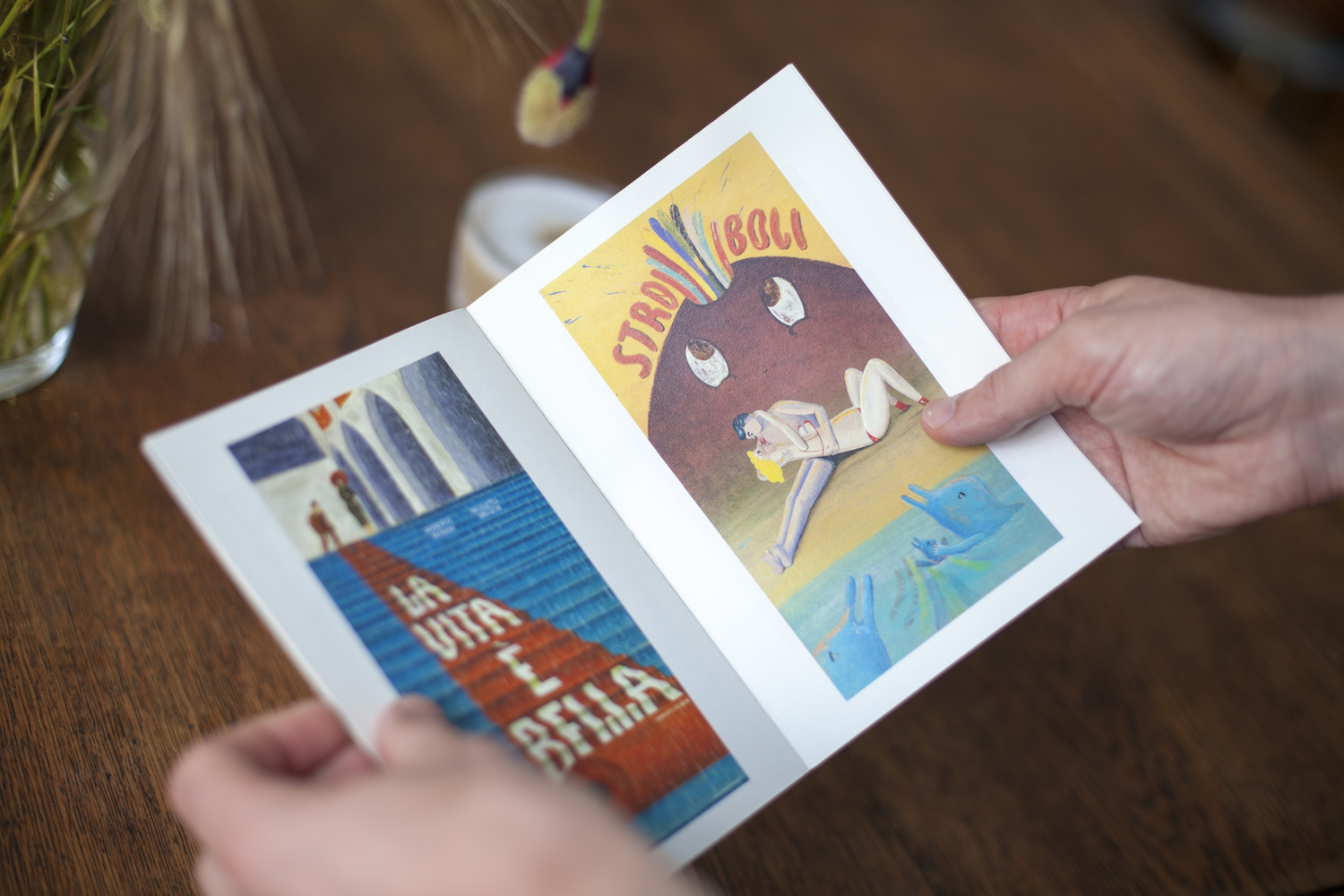
What landmark events have led you to this point in your creative journey? Have you had any formal training or any major breakthroughs that stick out in your memory?
Two years ago I finished my studies, graduating with a master of arts from the University of Art and Design Burg Giebichenstein, Halle. Since then, everything’s been developing rapidly. I’ve had national and international exhibitions in Berlin, L.A., and Porto. I’ve won awards and have had many award-nominations. Thankfully, different scholarships have made it possible to work on my own projects. I still remember the words of an elder artist who said to me, “you’ve got to have money, then art works”.
Your work is chock full of dark sarcasm and satirical observations. Talk to us about your sense of humour and some of the themes you enjoy exploring with your art.
Sarcasm is the kind of humor I like most. To me, humor is important because it allows you to get people’s attention. I mean, I barely know anyone who doesn’t want to laugh. In addition, satire also has great power. Just a few lines can have a great influence.
I use contemporary themes now and then in my pictures or comic strips. My favorite protagonist is a character I created called Bobby Feucht. He’s kind of my alter-ego. During my work, I slip into his role and live through his absurd stories, like in “The Big Bank Bobbery”, where he enables a kind of backstage-access that we merely imagine. Or the visit in “Bobbies Shopping Paradise”, the symbol of capitalism. He’s poking fun at people’s blind consumption and their behaviours at places like malls. I created a place with an “I-spy-like”overcrowded, strange atmosphere and the disgusting aesthetics of shopping malls are taken to their extremes. In that way, I lampoon people by enabling them to finally laugh about themselves.
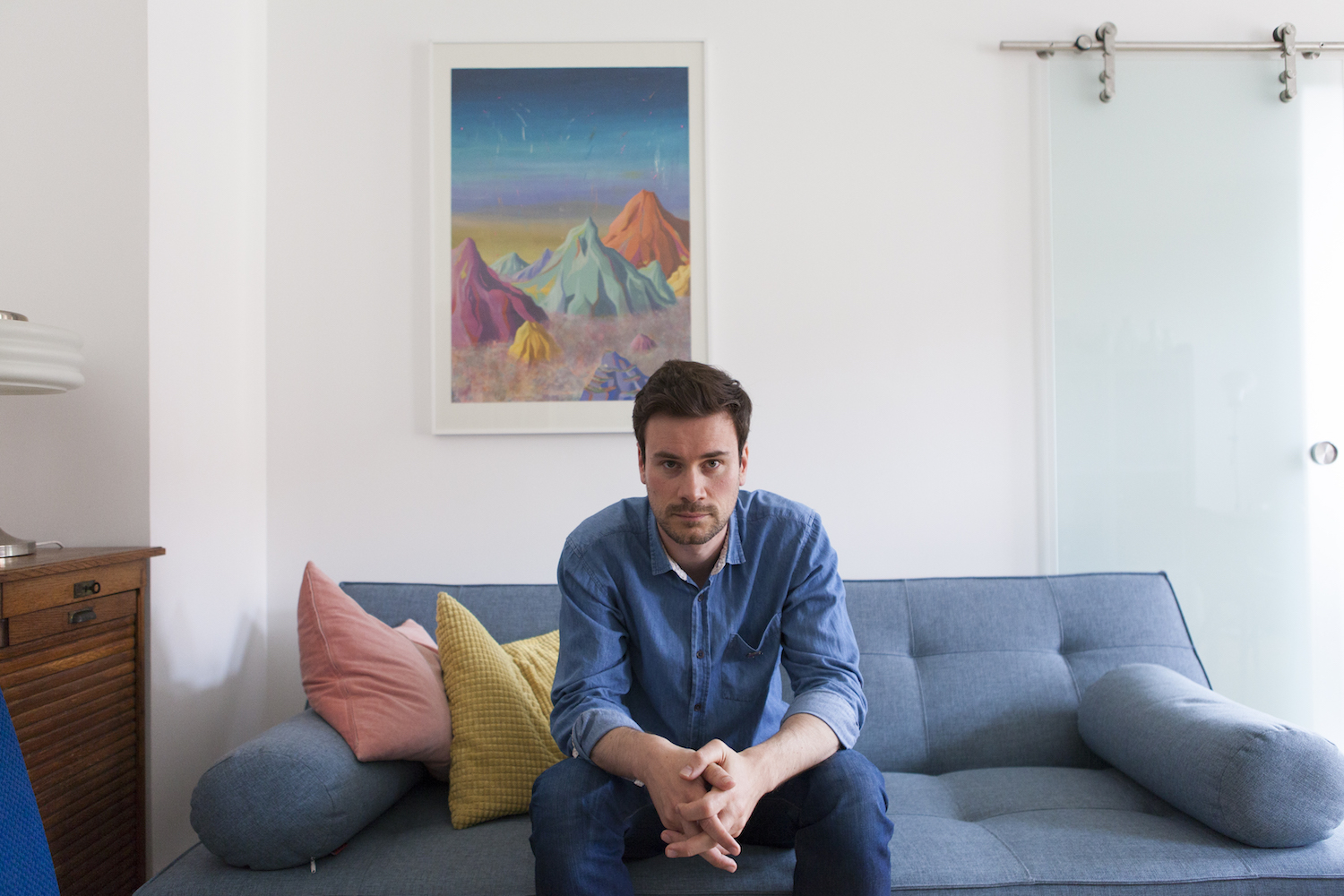
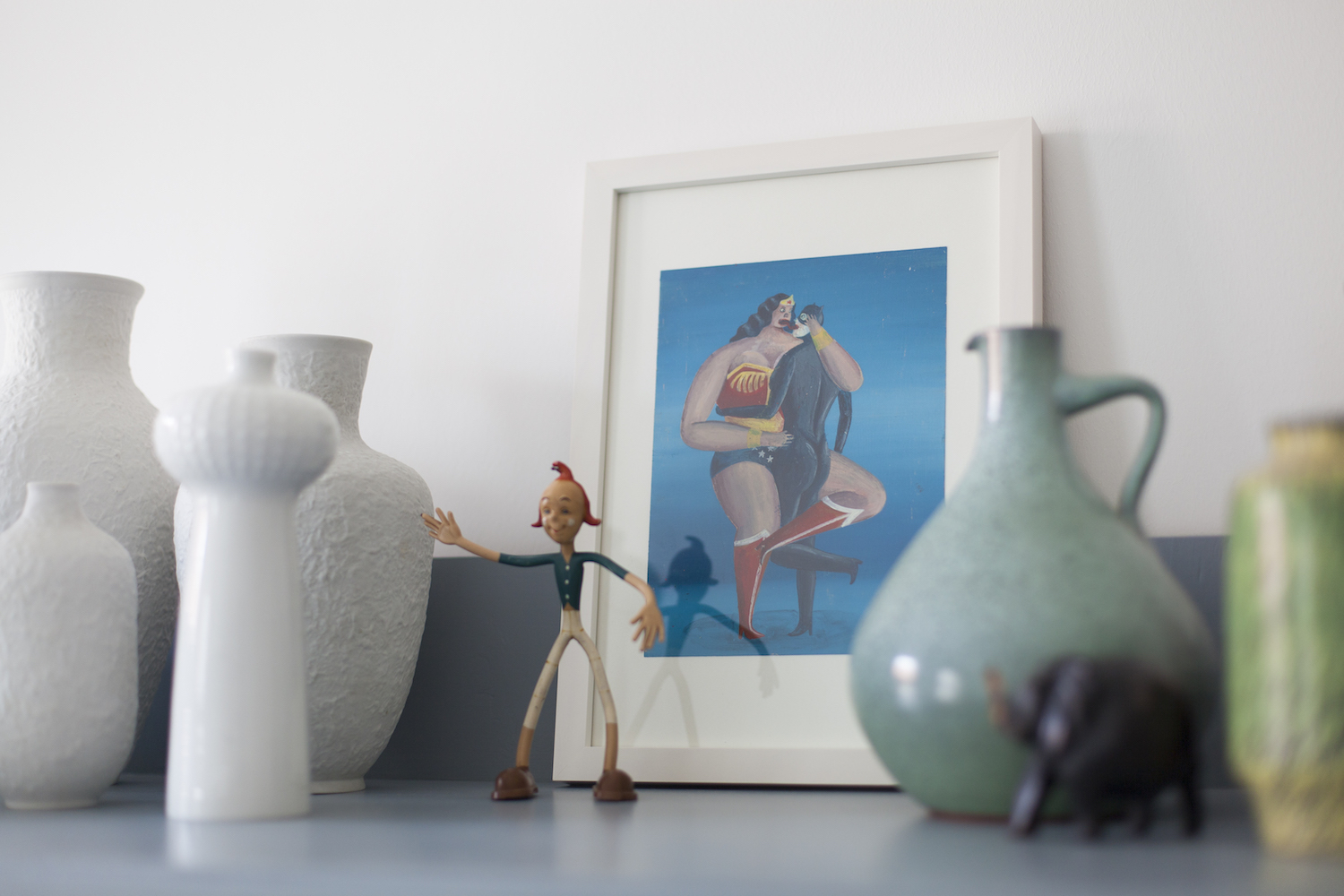
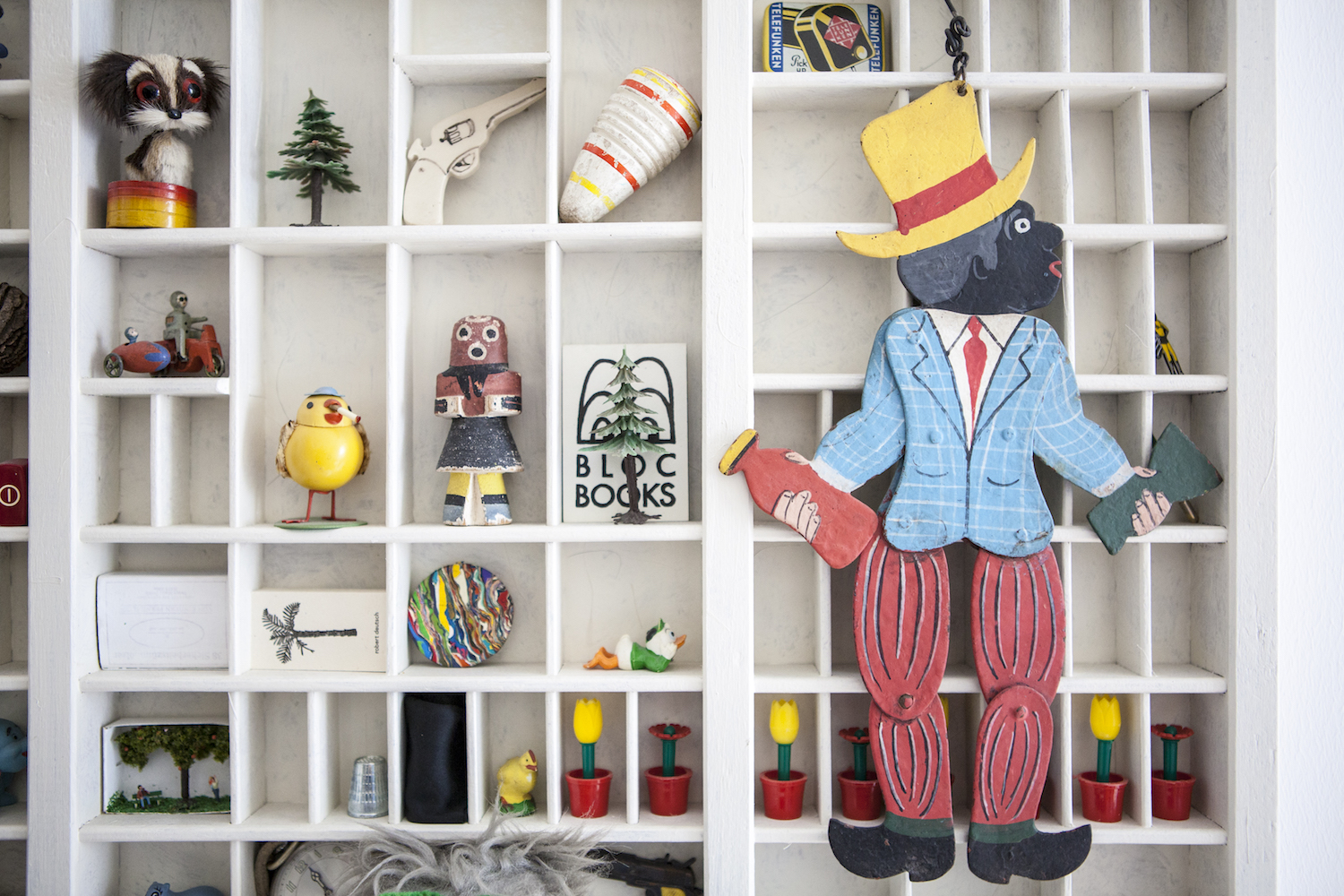
Please give us an insight into your relationship with pop culture. What kind of stuff were you into growing up and how do you approach the incorporation of well-known characters into your work?
Yes! Pop culture is magnificent. I love to pull characters out of their original context and to direct them in a new way. The comic heroes of my childhood become my actors, everyone knows them: Batman, Superman, Robin. I tear them out of their familiar surroundings and put them into a different light by adding new characteristics and talents. For example, the painting that shows Batman and Robin as lovers by shouting out “WHY NOT”. I believe such pictures are engaging people’s sympathy and spreading an overall good mood.
My antagonist Bobby Feucht has pop cultural characteristics too. His gun is oversized male genitalia which is the sign of our male-dominated world, a sign of the force of ‘mine’s-bigger-than-yours’. It’s a physical representations of the idea that the bigger it is, the more powerful you are. I love when women are amused by the pictures, while their partners show irritation and stand aside, wanting to leave rather than to stay.
The anti-hero appears to be a character archetype which is appealing to you. What is it that sparked your fascination?
Anti-heroes are great! They show people’s imperfection and appear completely authentic. Authenticity has become a rare item nowadays within society. Everyone’s copying each other in order to swim with the fashion wave. I always favored the nerds at school, people who weren’t at all interesting to anyone else. They always had clear perceptions of what they wanted and what they did. Nerds are the true heroes of our society.
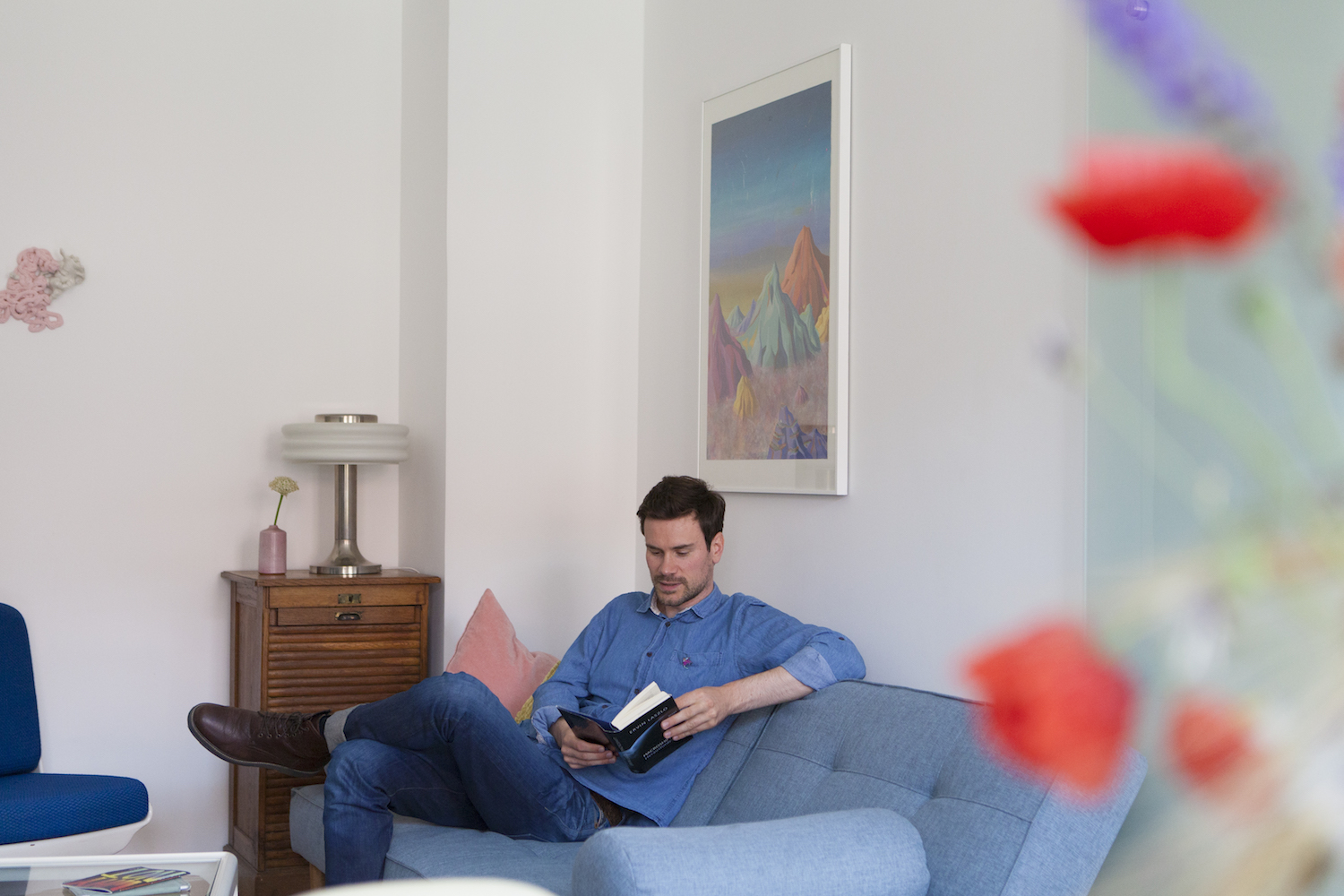
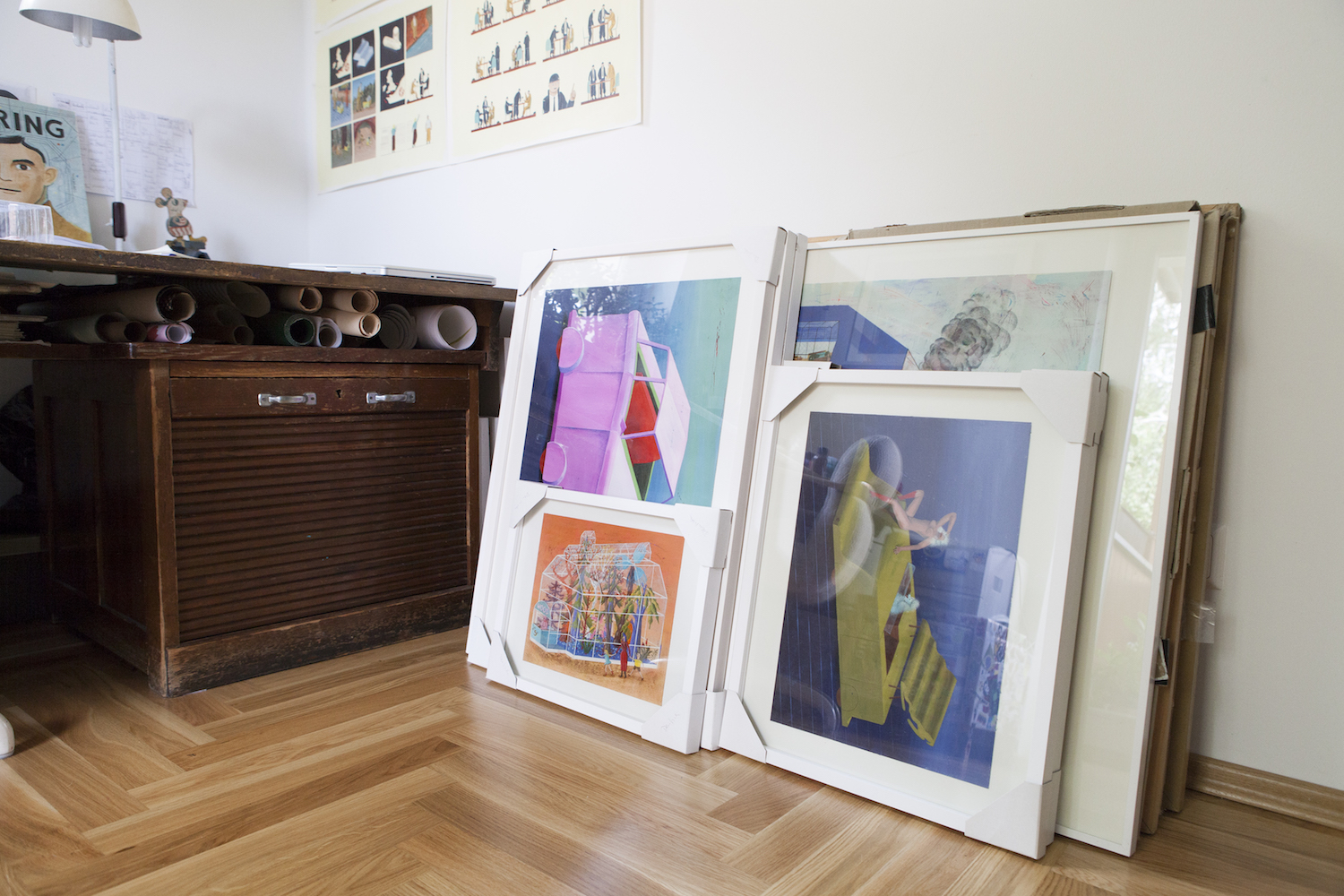
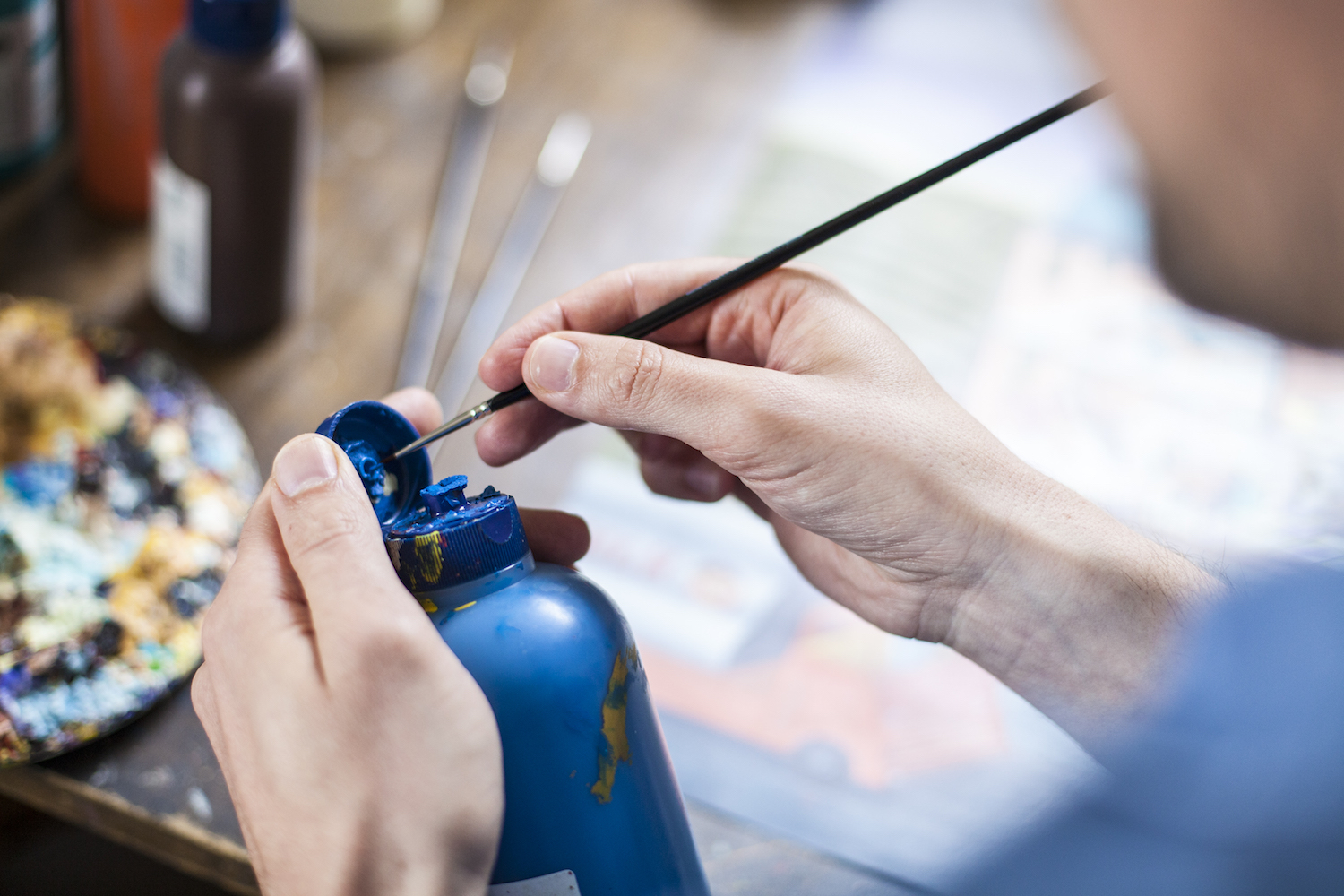
You’re currently working on a graphic novel about Alan Turing. Tell us a little about that, how it came about, and what piqued your interest in the project?
We live in the computer age. More and more work is taken over by computers. Day in and day out, artificial intelligence is accompanying us. More and more people have access to information and knowledge. This revolution is to be equalled with the industrial revolution in the 19th century, with the invention of the power loom. Alan Turing, a pioneer in computer science, had a big part in this change. He was a genius who had the vision to create artificial intelligence. One of the reasons why I am working on this book is to show people who this human being was, his genius, his homosexuality, his intentions. What drives a person to want to create artificial intelligence? Turing was a real anti-hero who just wanted to do his work and that’s very interesting to me. The Avant-Verlag will publish the book in Germany in the spring of 2017.
You have a love for zines and produce your own entitled ‘Why Not’. What first got you into zines and what has kept you hooked through the years?
First of all, I produce zines to log my work. Once a year I try to do one with some of my favorite works. It’s cool to see them in a hardcover edition, to be able to reflect on them and possibly put them into a narrative. Apart from that, it doubles as a catalogue that I sell to collectors or interested people.
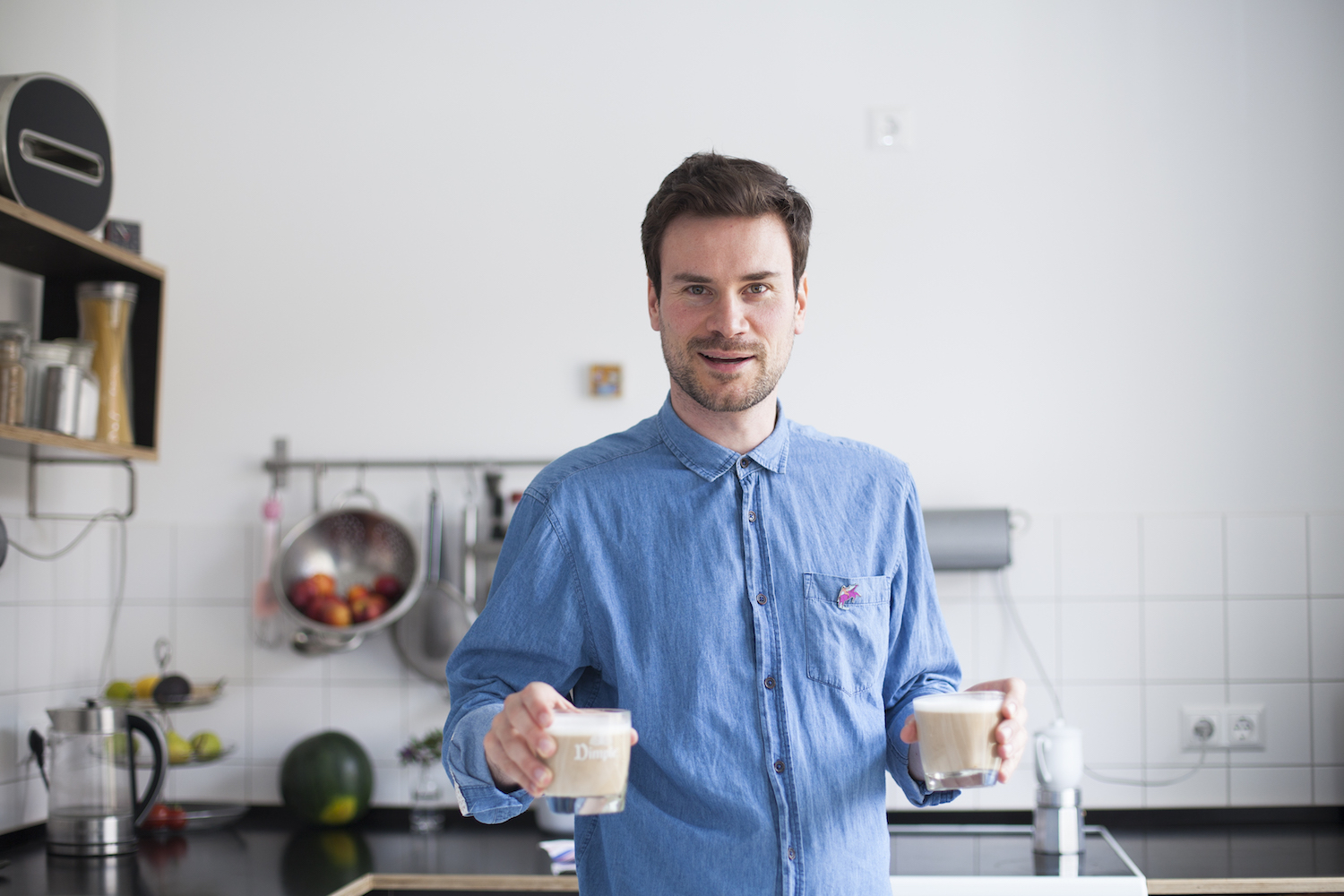
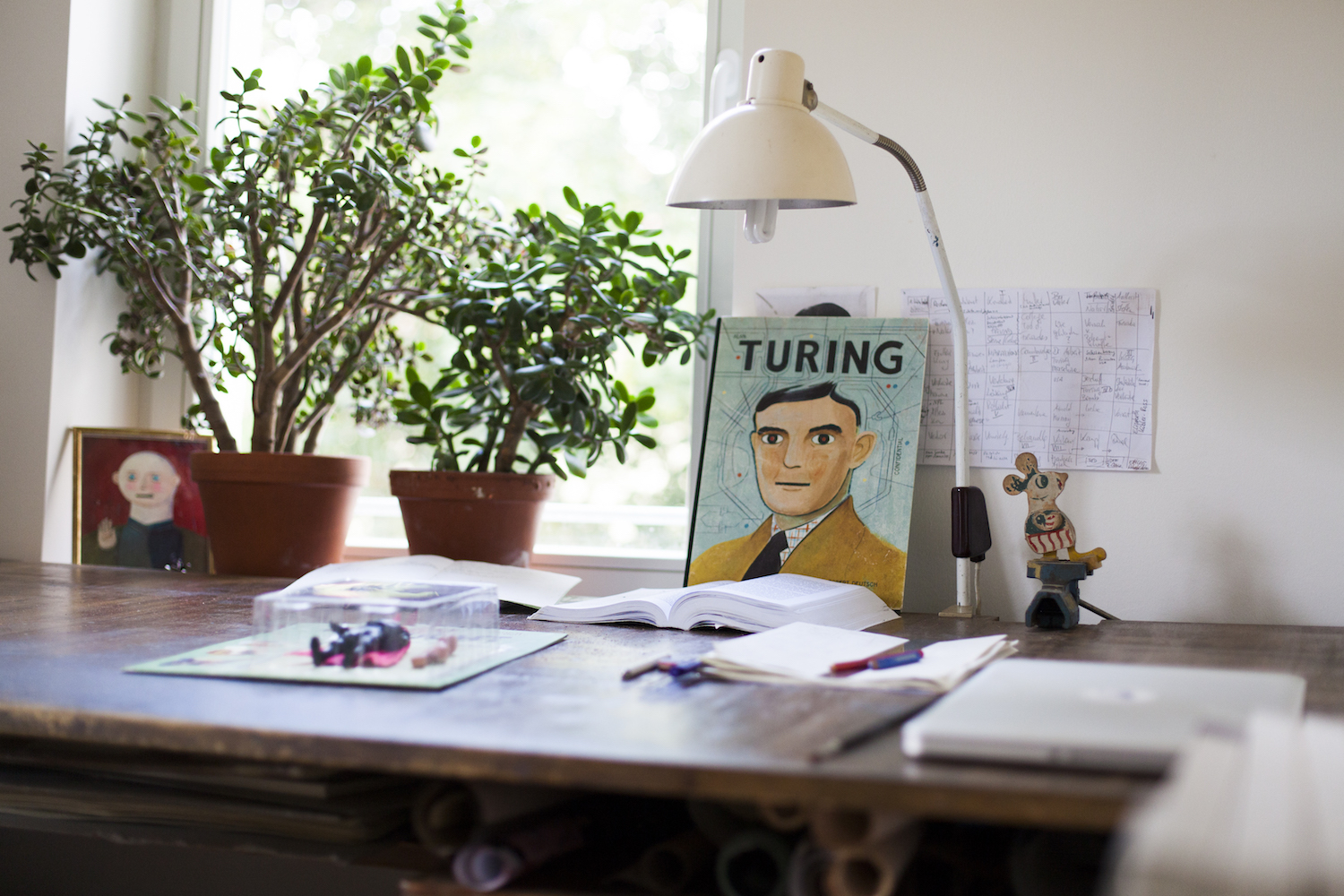
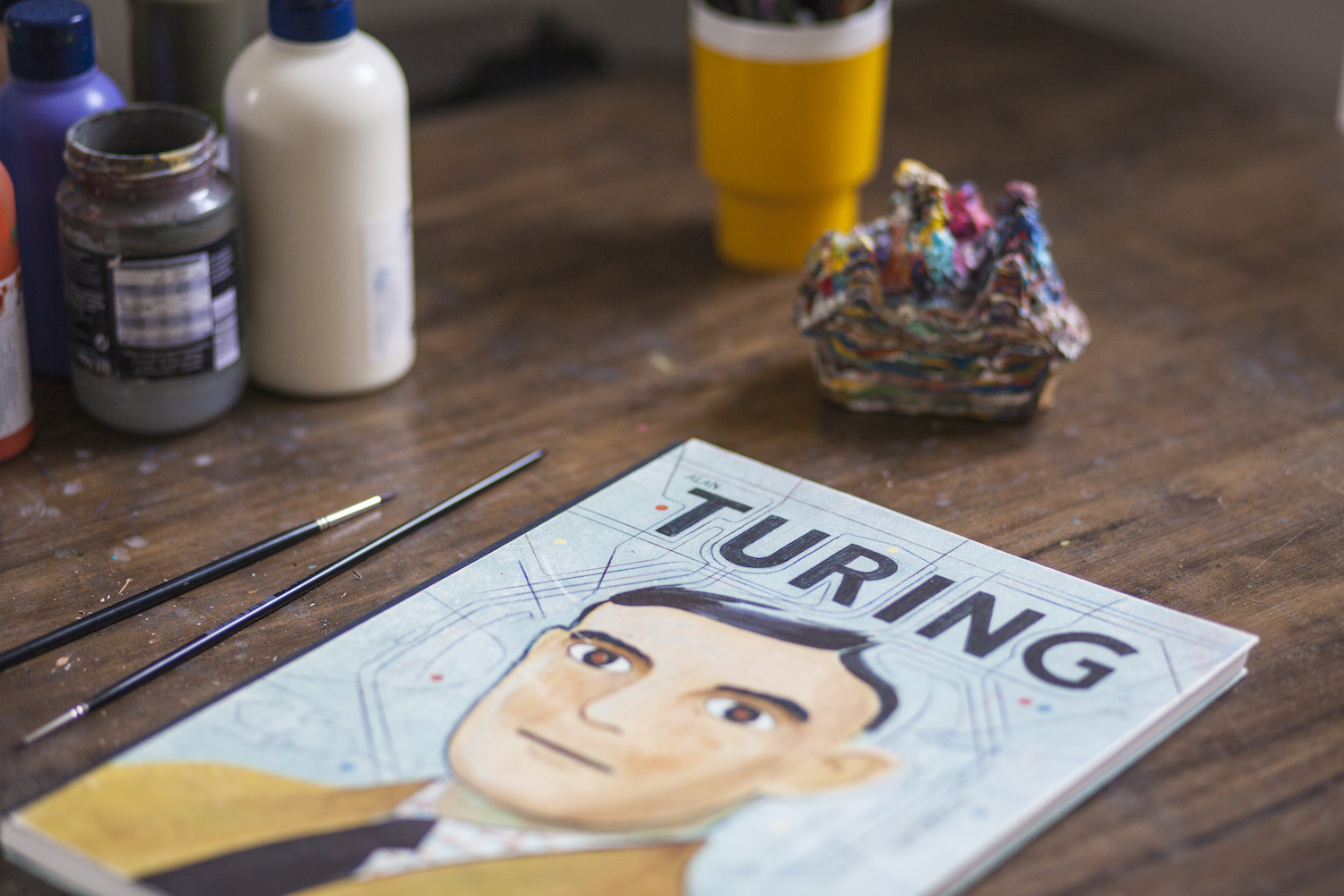
Are there any S6 artists you’re following that particularly resonate with you?
I love Slow Toast‘s photographs. in her pictures she’s very playful and frisky. I also like her way of playing with gender. And then there is Angela Dalinger. Last year we shared an exhibition in Berlin together. And last but not least Nicholas Stevenson. His works are absurd and stuffed with humour, exactly my cup of tea.
What’s next for Robert Deutsch?
My book about Alan Turing will be published in spring 2017, it’s my debut. And I have a new projects in the drawer already. Stay tuned! I’m planning an exhibition with free works to get out of my atelier again and travel. There’s a whole lot more to come and a whole lot more to be done.
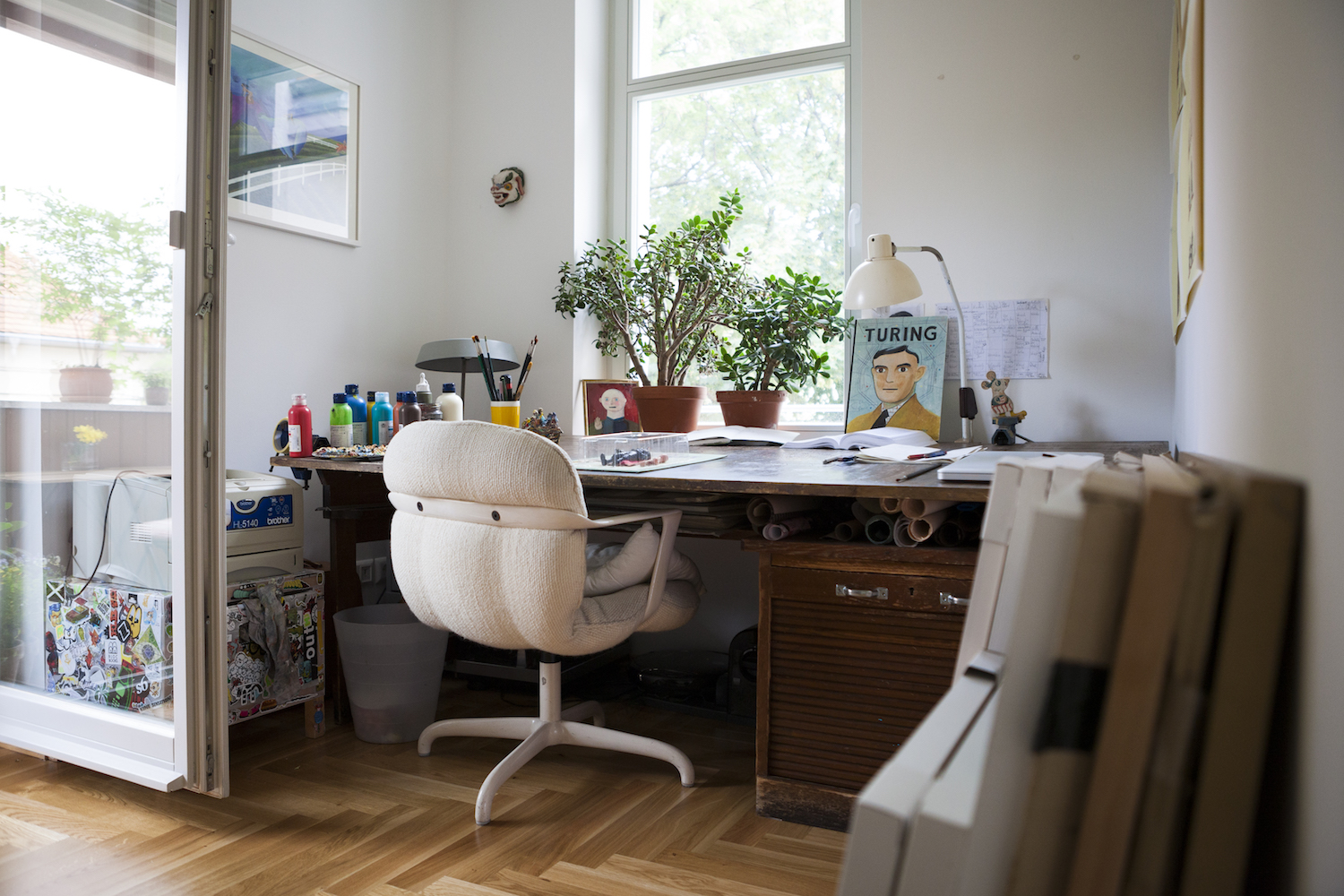
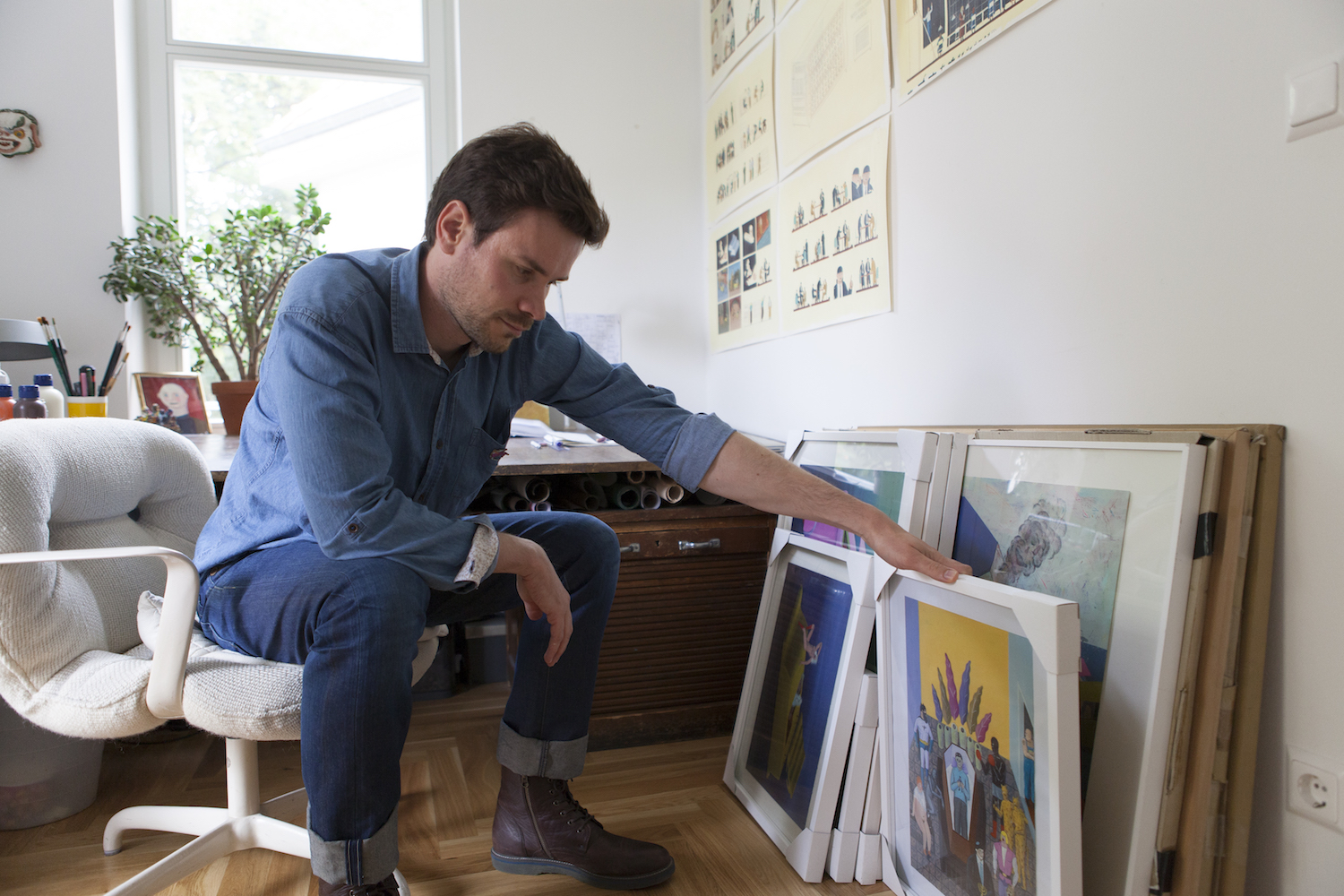
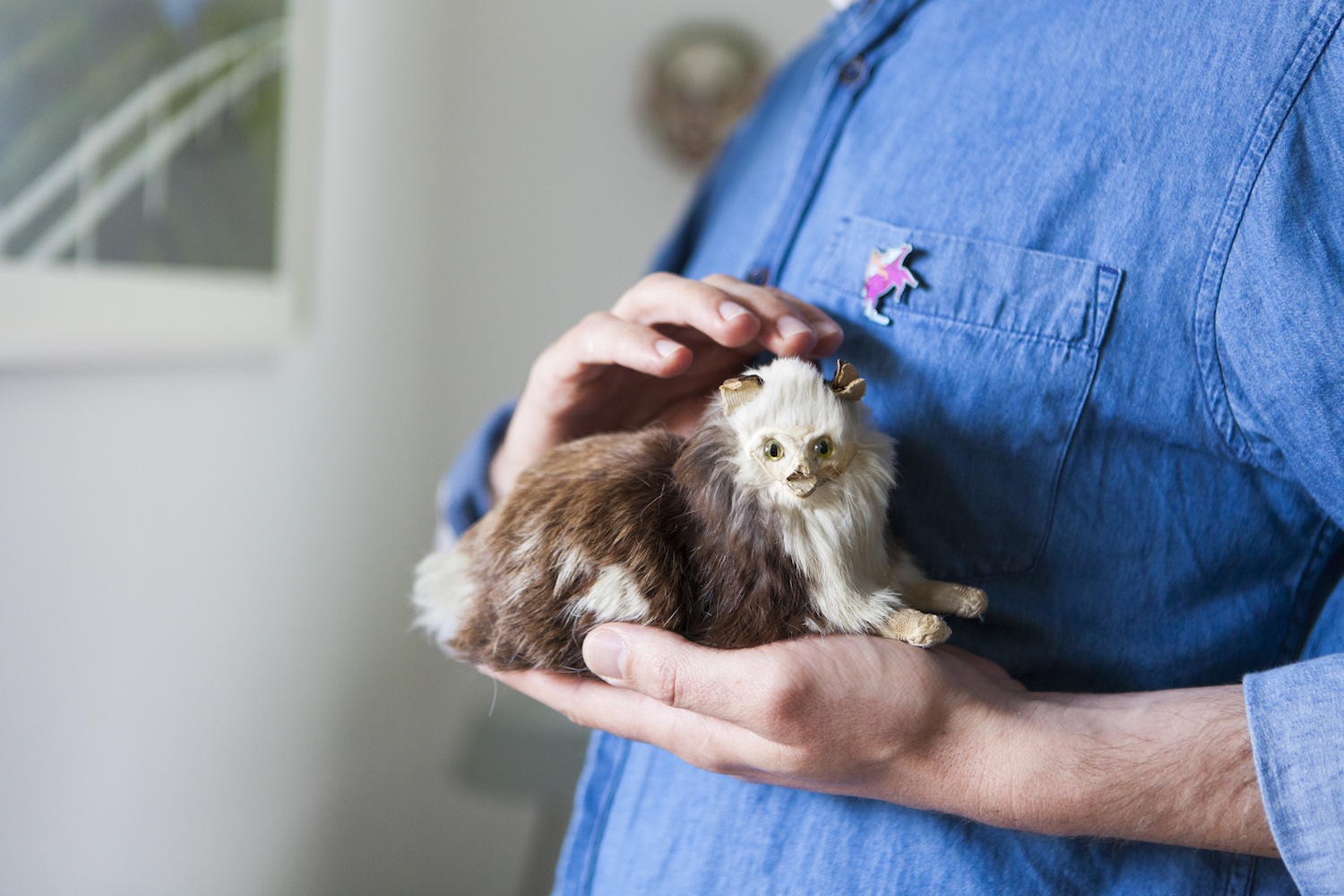
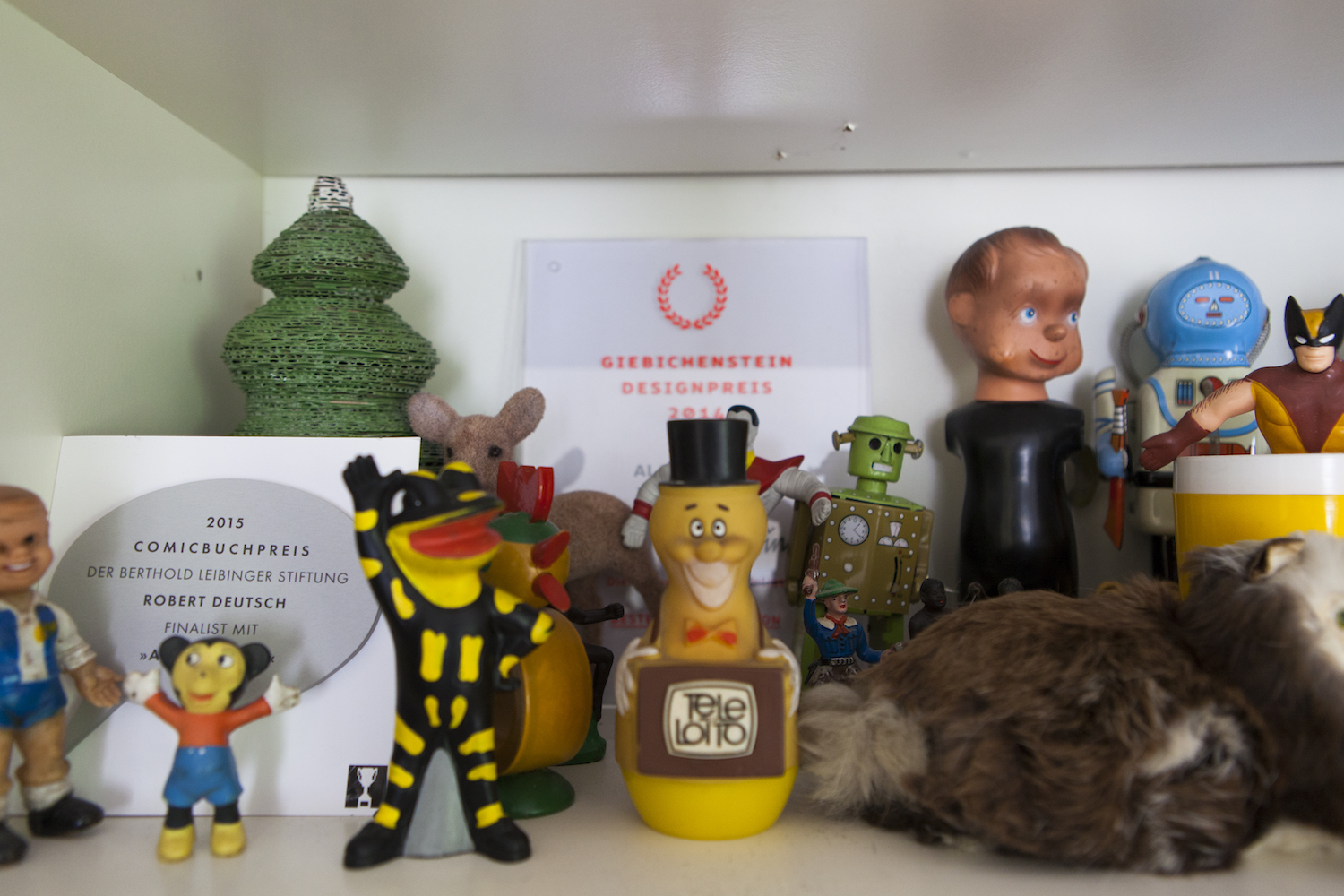
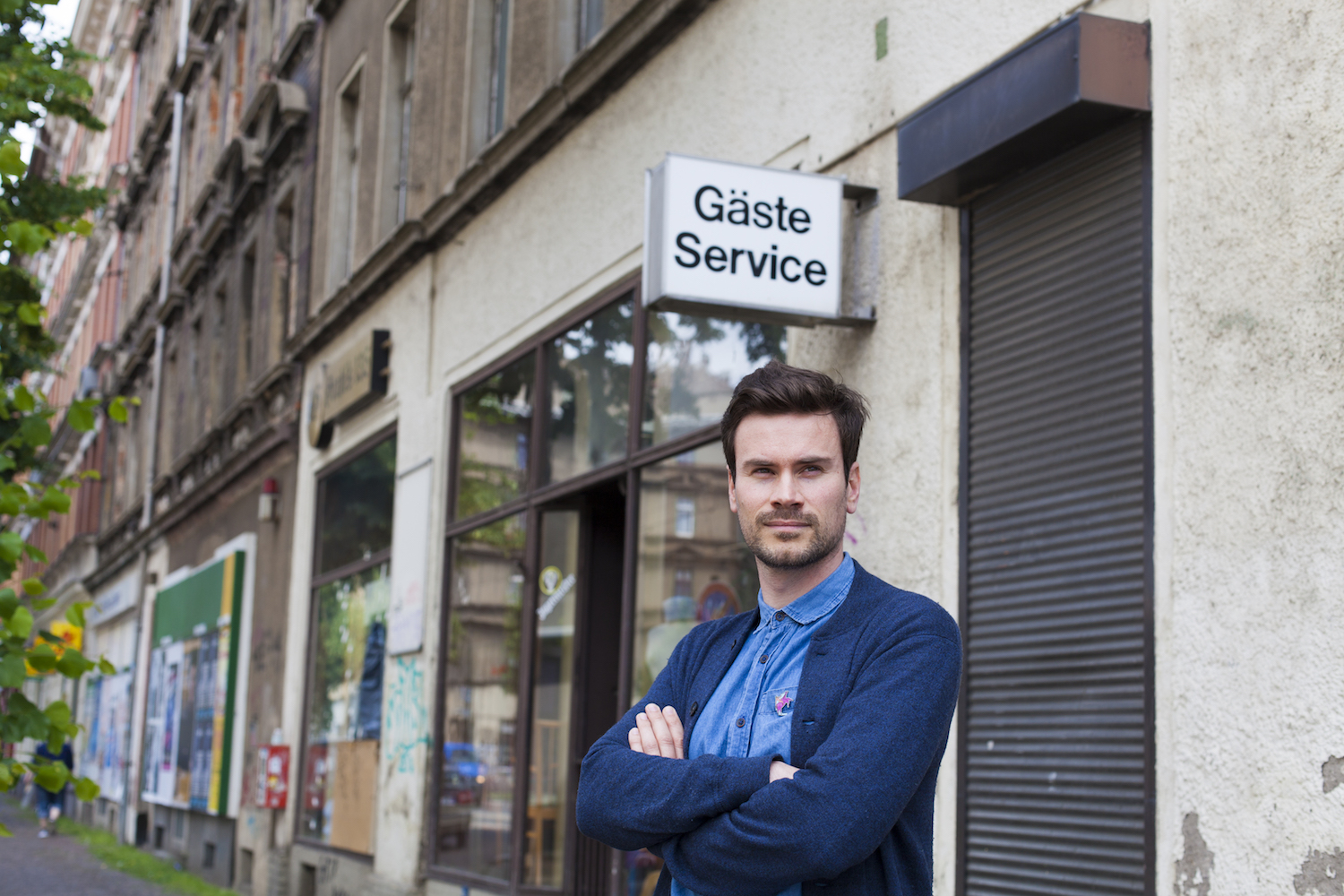
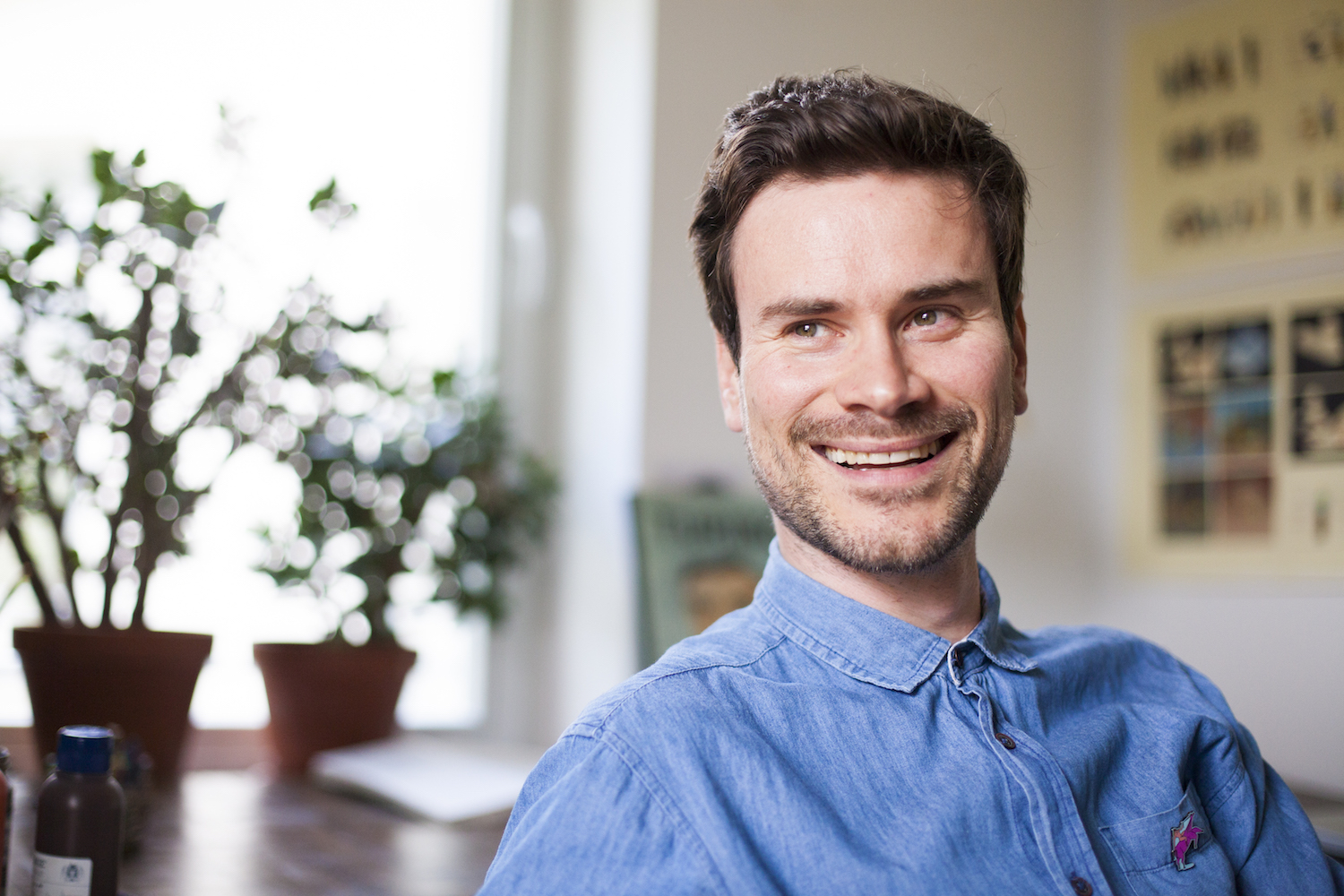
Photos by Yvonne Most
Interview by Tim Maclean
Comments